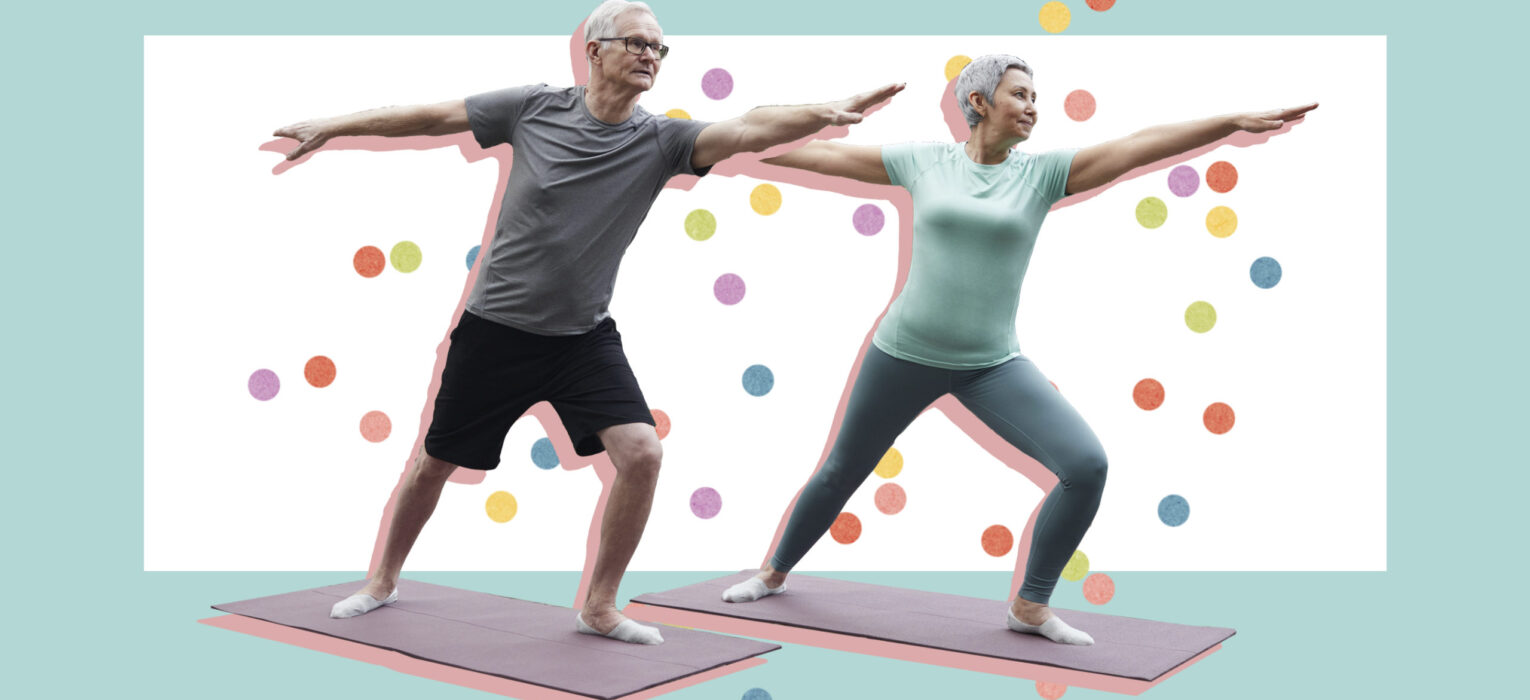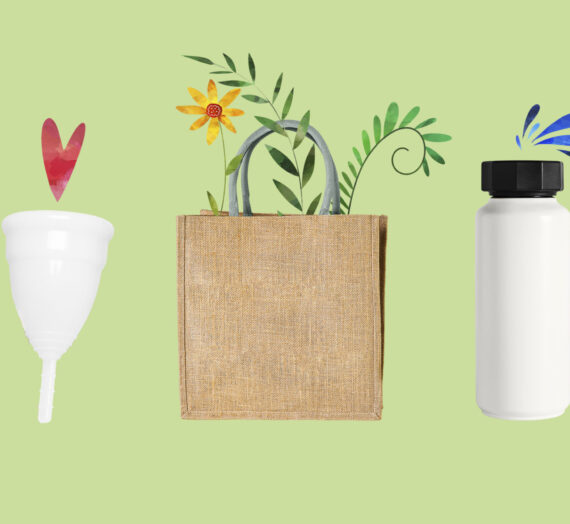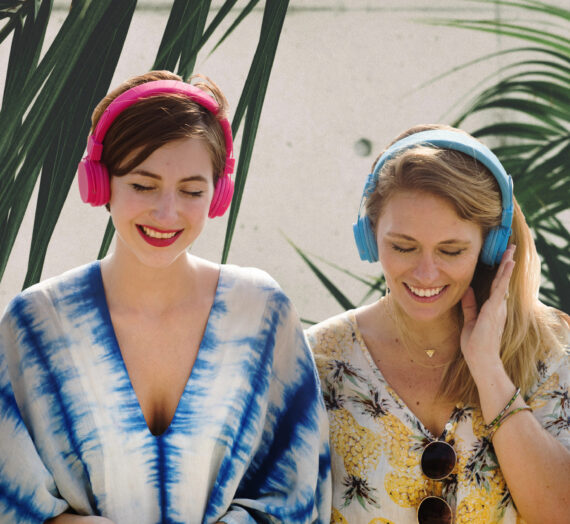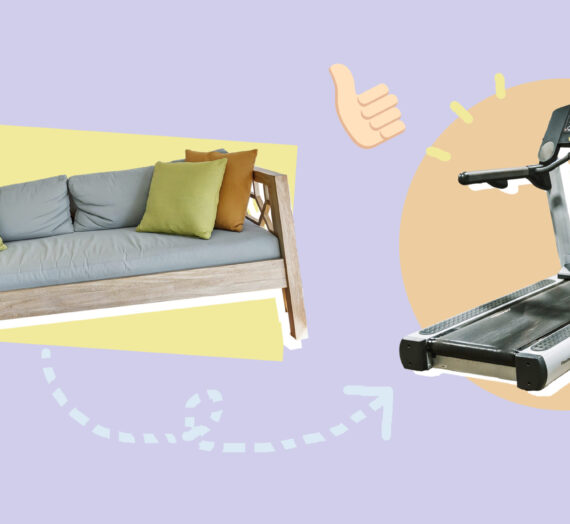If I told you you could potentially live longer by adopting 5 simple habits to slow aging, would you believe me? Maybe not at first. After all, it does seem like something out of a science fiction novel. Or something that is generations away, at the very least. However, as unbelievable as it might sound, science has proven that there are definite ways you can delay growing older physically. And no, you won’t need to be a billionaire to do it. You just need to make a few lifestyle changes—and stick to it.
I found out the secret to the fountain of youth—or that we are actually, seriously, close to it—from this video by Veritasium. It’s a 21-minute long clip that I would really recommend watching. In it, our host talks with Dr. David Sinclair, a biologist and genetics professor who is best known for his works on why we age and how to slow (and maybe even reverse) it.
Dr. Sinclair is also the author of Lifespan: Why We Age – and Why We Don’t Have To (which I am planning to get a copy of). Not sure about you, but if looks are any evidence, I’d say Dr. Sinclair has proved his studies work. He does not look 52 at all! I wonder what skincare products he uses? LOL.
Kidding aside however, he has made some amazing and pretty groundbreaking discoveries, which he touches on in the interview. But if you’re just interested in ways to stop growing older right now, read on. These simple habits to slow aging are doable for most people, and might surprise you as things you’ve known all along. Fair bit of warning though, while they are simple, they are not necessarily easy.
Table of Contents
1. Stay young by avoiding DNA damage
The vampires had it right all along. Avoid the sun at all costs! Just kidding. Of course not. We still need sunshine for vitamin D, mental health, and other benefits. But moderation is key, as in everything. It’s best to avoid going out from 10 a.m. to 3 p.m., when the sun’s rays are the strongest. If you’re heading outdoors, wear protective clothing like hats or shades. And if you don’t want to look like a prune-y version of yourself in the near future, don’t skip the sunscreen.
Avoid other forms of DNA-damaging radiation if you can as well, such as x-rays and CT scans. It seems there are a lot of adverse effects to these, so only get them when absolutely necessary.
I also did some research on microwaves since I know a lot of us use them on a daily basis. According to livescience.com, microwaves are a type of non-ionizing radiation, unlike x-rays and gamma rays. This type of radiation, like radio waves, are not known to damage DNA. Though there is a risk of getting burns and cataracts if you are exposed to microwaves, it is very low and only happens if there are large radiation amounts leaking through openings. So as long as you don’t use microwaves with damaged doors or holes, you’re okay. Just to be sure, don’t stand close to it while it’s operating. Food won’t heat up faster that way anyway.


2. Age less by *suprise* eating less
The second tip to age less is where it starts to get hard for most of us. It’s because it involves saying no to buffets and yes to being hungry more often. Yep, one of the ways to slow aging is to eat less.
According to Dr. Sinclair, this is the one surefire way to stay healthy longer and maximize your lifespan right now. This is because fasting can activate our sirtuins (a group of “longevity genes”) that, simply put, serve to keep us alive longer when we’re under threat. Plus, there have been numerous studies over the years proving that eating less is linked to living longer.
A city that proves this theory is Okinawa, Japan, which has 68 centenarians per 100,000 inhabitants. This is thrice the numbers found in U.S. populations of the same size, according to this article. Before meals, Okinawans say “Hara hachi bu“, a Confucian mantra which reminds them to stop eating when their stomachs are 80% full.


Even though it’s hard to restrict our calorie count, we can definitely do so if we put our minds to it. You don’t obviously have to start by skipping meals entirely, but maybe begin by reducing the amount of food you eat (do like the Okinawans do and follow the 80% rule) or lengthening the time between meals. Eventually, maybe you could try intermittent fasting, which Dr. Sinclair practices personally. Consult your doctor before doing any of these, just to be safe. You want to make sure you don’t get any nutrient deficiencies or other problems!
Thinking of the many benefits (other than living longer and healthier) can be a motivation to restrict calories as well. You spend less, save time from not cooking as often, and maybe even get to your ideal weight if you’re not already there. If you want to track your calories, try using an app to make it easier. I’ve been using Asken Diet for more than 6 months now and it’s worked great for me.
3. Change your diet to slow aging
It’s not just the quantity of food that we have to control, it’s the type as well. One of the simple habits to slow aging is to eat less protein.
According to Dr. Sinclair, meat and dairy activate an enzyme in the body called mTOR, which is associated with shorter lifespans. Also, there have been studies that eating protein-rich foods with high levels of sulphur amino acids, like meat, dairy and nuts can increase our risk of cardiovascular disease. Processed meat like bacon, ham, and hot dogs are even worse and are linked to cancer and early death. Who knew that bacon was a killer?


So what do we eat then? Opt for a more plant-heavy diet. You don’t have to skip the meat totally, but definitely lessen it if you want to live longer. Beans are the mainstay for most centenarians, or people over 100 years old, in the Blue Zones—five places in the world (Okinawa is one) with the highest life expectancy. On average, they only eat meat five times per month. It turns out, vegans may have the last laugh as they tend to live longer than omnivores.
4. Stay youthful by exercising
Just when you thought it couldn’t get harder, one of the simple habits to slow aging is to exercise. “Exercise turns on the genes to make us young again at a cellular level,” Dr. Sinclair says in this article.
As we grow older, we lose as much as 15% of our total muscle mass, and tend to lose bone density and mobility as well. Being physically active is necessary to combat this decline. According to many health sites, the goal is to do 30 minutes of moderate activity daily. This translates to a heart rate that’s 55-70% of your maximum.
It seems the most beneficial type of exercise for longevity is high intensity interval training, or HIIT. This raises your heart rate to 75-80% of your maximum. “Make your body feel like you’re running from a lion,” says Derek Muller, host of Veritasium’s video above.
Related:
How To Overcome Excuses Not to Exercise
From The Couch To The Treadmill: Why I Started Exercising


And if that’s not possibly enough to get you up and going, working out has amazing benefits on your mental and emotion health too! In fact, exercise can lead to a balanced life.
The key is to start slow and incorporate as much movement as you can into your daily life, from taking the stairs instead of the elevator, vacuuming yourself instead of getting a robot to do it for you, etc. Then you can transition to adding workouts into your week and eventually into most days. Here’s how you can start exercising—and stick to it!


5. Age less by getting comfortable with the discomfort
“Our genes didn’t evolve for a life of pampered comfort.” These are the words of Dr. Sinclair in this interview. It figures, since none of the the above ways to slow aging are remotely easy. The next tip to age less is no different: get uncomfortably cold or hot.
Similar to the methods above, exposing ourselves to temperatures above or below the ones we’re used to engages our survival circuit, so to speak. It could be due to hormesis, or the concept of introducing stresses to the body to help prepare it for future, stronger stressors. This is basically how vaccines work.


There are numerous benefits to cold exposure aside from longevity, strengthened nervous and immune systems included. For heat exposure, usually done via saunas, there are some benefits but fewer studies on it.
Before you take an ice bath right now, however, do note that you might die. So don’t do anything extreme, because that will only do more harm than good. Instead, apply it in small doses like ending your showers with colder water than usual or sleeping with a lower temperature than you’re used to. Don’t push it and stay on the safe side.
It’s essential to apply the hormesis principles carefully, not abruptly. Seek advice from your doctor, or at the very least listen to your body. Less is more, in every sense of the word in this context.
Ready to apply these simple habits to slow aging?
And there you have it. The secret to long life isn’t so secret anymore, after all. The best thing is that most of us can work towards it. We don’t need to be billionaires or winners in the genetic lottery to lead long and healthy lives.
Does this really come as a surprise though? Doctors and health experts have been telling us to exercise and eat healthy all this time. We know that anything in excess is not good. The problem is, most of us have not made it a priority or simply dropped it as something that doesn’t fit our lifestyle.
Like most things in life, the things worth having (including a ripe old age) involve hard work and sacrifices. In this case, a lot of junk food, convenience, comfort, and luxuries. But if you really think about it, is that really such a high price to pay for a longer, happier, and healthier life with your family and friends?
I didn’t think so, either. So what are you waiting for? Let’s all make these lifestyle changes and adopt these simple habits to slow aging starting now.







Ally
Great post! I learned a lot from it. There are breathing techniques that are used in cold water to calm your body down and warm you up! And there are also breathing techniques for warm weather like saunas! It’s a good idea for anyone to educate themselves on these before you think about exposing your body to new temperatures! Thanks for sharing!
Kathleen
Thanks, Ally! Yes, definitely need to do some research before doing anything new. I think I read about breathing techniques for cold therapy in the Wim Hof method, but didn’t know there were some for saunas as well. Thanks for sharing! 😀
Aditi Jain
Exercising is really must. Great post
Kathleen
Thank you!
Wayneish
This is definitely an eye opening. Thanks for sharing!
Kathleen
Thanks Wayneish! 🙂 Hope you get to apply them! 🙂
Amanda
That is very interesting how eating less slows aging
I had no idea
Thanks for sharing!
Kathleen
Yes! I didn’t know either but I guess it’s not too surprising if you think about it. Being overweight leads to a lot of health issues so keeping the pounds at the ideal number (based on your height and stuff) is better for your health. 🙂
Smiley
Great tips! Everything in moderation…
Kathleen
Thank you! Yep, that’s the idea.
Vaguely Vogue
Love this✨such useful and practical tips!
Kathleen
Thank you! I’m glad you liked it! 🙂
Nancy
Wow! There is so much in this post I didn’t know about. Longevity genes? Eating less protein? Extreme temperatures? Looks like I definitely have to start making some changes. Thanks for sharing!
Kathleen
I felt the same way when I watched the video! I got so amazed and was thinking of all the people who should know about this! Hope you get to slow aging successfully!
Kali Allen
Interesting! The eat less and healthier totally makes sense but exposing yourself to different “uncomfortable” temperatures is a surprise.
Kathleen
Yes! I didn’t know that either. Who knew that shivering could slow aging. Lols!
KATE
Great post! I learned quite few things like about DNA, interesting facts. Now is time to incorporate it into the life. Thank you for sharing!
Kathleen
Thanks so much, Kate! I’m glad you liked it. Hope you’re able to apply these methods! 🙂
Pam
I like the easy tips included in this article. The info on hot/cold discomfort is a new one. I would add that having a good social support network of close friends (even just a couple) improves wellness and happiness which seems to have a very positive impact on aging well.
Kathleen
Thanks so much Pam! That is a wonderful suggestion to slow aging on an emotional scale! Having a community of care definitely helps us in so many ways. 🙂
Kristin
Now in my 40s, I’m trying to implement some of these suggestions. My body is definitely not what it used to be. I’m now consciously trying to eat significantly less and exercise every day, even if only 20 minutes or so. I want my body to work for the long haul!
Kathleen
Yaay! I’m so glad you are taking it to heart! ❤ I hope you stay motivated and keep going! I know I’m adopting these habits now so they become second nature as the years go by.
Sara Mondaini
As I get older I find that looking after myself better is a must. Exercise and diet is key. I’m in my late 40’s now and this was a real comfort to read. I’m noticing things change as I get older and as the menopause is hiding in the wings. I’m getting more comfortable in my skin and more comfortable with the ageing process. Thank you for the suggestions,
Kathleen
It’s good to hear that you are taking care of yourself! I know a lot of people your age who just seem to abandon any notion of proper care if it involves exercise or giving up or even just cutting back on unhealthy food. Yes, you can grow old gracefully and slow it down with these tips so you can still enjoy more years with your loved ones!
Celeste Lili
Super great tips! Protecting your skin from the sun and exercising really are so important in general. I always make sure to use 2 fingers worth of sunscreen for my face and neck every morning. Now that I have a treadmill it’s time to start doing some walks/runs everyday. Thanks for sharing!
Kathleen
Thanks, Celeste! Yes, we definitely shouldn’t be skipping sunscreen. Congrats on getting a treadmill! Good luck!:)
Kareena
I’ve started including more exercise and outdoor activities in hopes of becoming and staying healthy. Great article! Thanks for sharing.
Kathleen
Good for you! Hope you get motivated to continue! 🙂 Thanks for dropping by as well!
chrishinpbc
Great article! Very interesting. I definitely need to get back to eating a diet that is primarily vegan. When I was on a vegan diet I did feel better. I didn’t realize I was increasing my longevity as well. I need to start eating less also both to look better and increase my longevity. Thank you so much for taking the time to write this article. I look forward to reading more of your posts.
Kathleen
Thanks Chris! I didn’t know it before I watched the video and did research as well. It’s amazing, right? It’s better for us and for the environment, actually. I’m glad you liked it and that you’re planning to practice some of them! Good luck!
Kari
So interesting! I knew that sleeping cold helped with better (more restful) sleep but I didn’t realize it had anti aging benefits. I’ll try a cold spray at the end of my shower tomorrow but I don’t about giving up bacon 🙂 ha ha!
Kathleen
Yaay, thanks Kari! Yes, it was definitely news to me as well. I try to also end with cold water in my showers nowadays. A little bit of cold in exchange for slowing down aging doesn’t sound too bad. But yeah, bacon is hard to give up! I rarely eat it nowadays, but definitely won’t say no if it’s offered to me. LOL
Kylee
my big takeaways here: 1. need to eat less bacon (a tragedy for me) 2. amp up the fasting as i get older 3. try cold showers! love the well researched content and your unique voice kathleen! keep it up ?
Kathleen
Thanks so much, Kylee! Your feedback means a lot. ?
LOL, I know less bacon IS a tragedy. Here’s to aging less each dag with these habits, though! ?